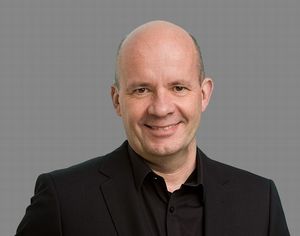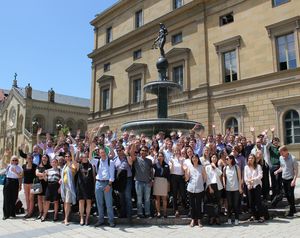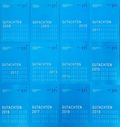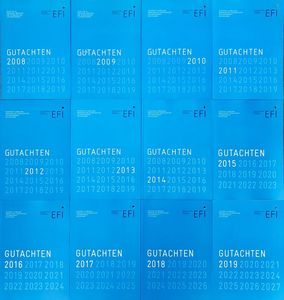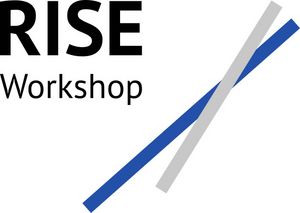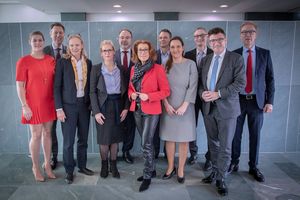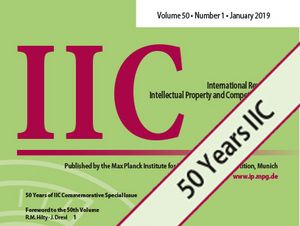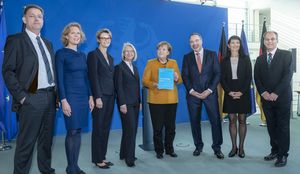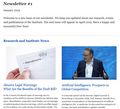Fifty years ago, shortly after the establishment of the Max Planck Institute for Foreign and International Patent, Copyright, and Competition Law in 1966, Eugen Ulmer as its founding director and Friedrich-Karl Beier, then assistant director, decided to launch IIC as a journal published entirely in English on intellectual property law. IIC — at that time titled the “International Review of Industrial Property and Copyright Law” — was to supplement the already existing German-language journal GRUR Int., also managed by Eugen Ulmer and Friedrich-Karl Beier as editors, yet in co-operation with the Deutsche Vereinigung für gewerblichen Rechtsschutz und Urheberrecht (GRUR).
The idea to expand into other regions of the world through a purely English-language journal, parallel to GRUR Int., proved to be a wise decision. In some regions — especially in Continental Europe and Asia — it was still common for IP lawyers to learn German and use it as a publication language. In the years to come, command of German became even more important for scholars who sought to excel in IP law, since it facilitated a research stay at the Institute and, above all, a doctorate at the University of Munich. Yet, given the very dynamic development of international IP law during that period and the growing belief that European IP rules would be needed in times of economic integration, it became essential to go beyond enhancing scholarship among German speakers and to address the international community in English as the new lingua franca with the objective of influencing the future directions of scholarship in international and, soon to be, European IP law.
In terms of content, IIC initially focused on comparative law studies and the revisions of the IP Conventions with the aim of expanding intellectual property protection. Yet, as early as the 1970s, IP scholars, not least from the Max Planck Institute, supported initiatives to establish more integrated European protection systems, with the European Patent Convention of 1973 as the most notable achievement. Moreover, IIC provided a platform for scholarly debate at a time when European harmonization of national IP laws and the adoption of legislation on the first unitary protection systems gradually became a reality in the late 1980s. On the international level, the establishment of the WTO in 1994 and the adoption of the TRIPS Agreement exported standards previously accepted in the industrialized world to major emerging economies, such as India, China and Brazil, but also a large number of smaller and often less developed countries. At the same time, the criticism of these standards of protection, which were not necessarily in the interest of less developed economies, was quickly growing both in the recipient countries and among the global academic community. These tensions are partly reflected in IIC’s 25th anniversary special issue compiled by members of the Institute (see IIC 6/1995).
The critical debates on international IP have continued ever since, with IIC becoming an important forum for the most diverse voices. In this journal, advocates of expanded protection as well as its critics had their say — provided that the scholarly quality and independence of a contribution were guaranteed. Today, thanks to a large, stable and extremely dedicated network of reviewers, IIC is now a peer-reviewed journal, guaranteeing the highest standards of quality control and impartiality with an acceptance rate of a mere 20 per cent. IIC is currently published nine times a year by Springer – with plans to further increase in the years to come.
Another reason for its success was the decision of the current Editors-in-Chief to expand the journal’s subject areas by including competition law, not only to reflect the broader fields of research at the Institute, but also to take into account the quickly growing importance of competition-related issues of intellectual property. Accordingly, the journal was renamed the “International Review of Intellectual Property and Competition Law”.
As the two Editors-in-Chief, Josef Drexl and Reto M. Hilty say: “In times of bilateral or plurilateral trade agreements, which economies with strong bargaining power, often in the interest of individual industries, use to impose unbalanced TRIPS-plus Standards on less developed countries, the international community should develop answers together in order to create a generally binding and sustainable regulatory framework. In this context, the existence of recognized journals which are not oriented toward the short-term mainstream, but committed to taking up basic research topics with a long-term perspective, thereby providing a forum for independent academic analysis is invaluable to ensure a balanced and competition-oriented IP system on the national, regional and international levels”.
For the first issue of IIC’s 50th volume, researchers from the Institute have undertaken to delve into some particularly topical challenges, which will also most likely figure highly among the Institute’s research priorities in the next few years – such as “Artificial Intelligence and Collusion”, “IoT Connectivity Standards: How Adaptive is the Current SEP Regulatory Framework?” and “Copyright Law on Blockchains: Between New Forms of Rights Administration and Digital Rights Management 2.0”.
More information


